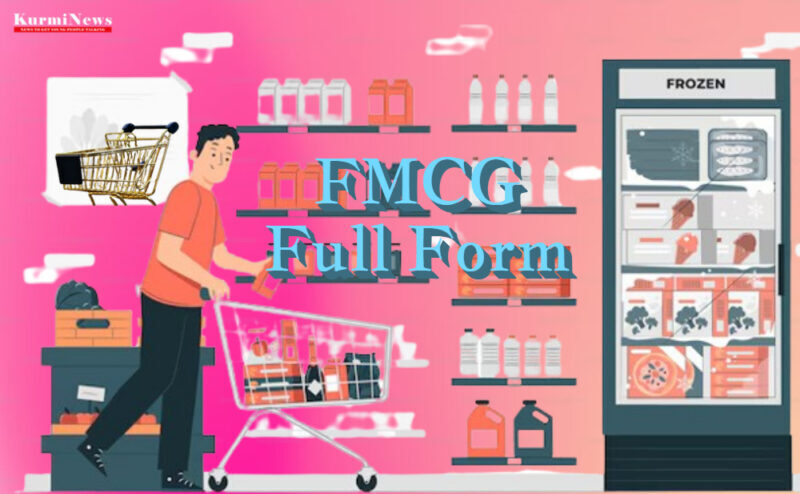Types of FMCG Products: FMCG Full Form
Cigarettes: FMCG Full Form- While not categorized as an FMCG, cigarettes fall under tobacco products. They have a limited shelf life of about 15 months due to their non-vaporized chemicals, which can cause them to become stale over time. Additionally, cigarettes carry various health risks for users, including irritation, digestive issues, headaches, coughing, drowsiness, and indigestion.
Beverages: These are considered FMCG products. They encompass a wide range of drinkable items, including soft drinks, juices, and bottled water.
Candy, Gum, and Sweet Foods: Though not classified as FMCG, these items are still consumed by many people worldwide.
FMCG Full Form: Understanding FMCG
FMCG stands for Fast-Moving Consumer Goods, also known as Consumer-Packaged Goods (CPG). These products are typically non-durable, with a short lifespan, and are regularly replaced or consumed within a short period, often ranging from days to weeks or months.
Dietary Supplements: FMCG Full Form
Dietary supplements consist of combinations of minerals and vitamins typically consumed in doses ranging from 400 mg to 1200 mg. These supplements are purchased before the intended consumption date. Unlike other FMCG products, non-durable dietary supplements may pose challenges in marketing plans and distribution due to their lack of specific consumption dates.
Differentiating FMCG Marketing Strategy
Marketing strategies for FMCG products differ from those of other categories due to their rapid turnover and susceptibility to market trends, especially price fluctuations. FMCG (FMCG Full Form) products are primarily aimed at generating cash flow rather than long-term investments.
Improving FMCG Business Performance
Enhancing the performance of FMCG companies can be achieved through three key areas: marketing strategy, marketing communications throughout the product life cycle, and value creation. With the rise of internet accessibility, FMCG companies often utilize online marketing channels, including infographics and articles, to educate consumers about their products.
Utilizing Social Media for FMCG Digital Marketing
Social media stands as the primary digital marketing platform for FMCG products. Given the perishable and consumable nature of FMCG items, consumer behavior is characterized by unique and short-term consumption patterns, often occurring within minutes or hours. Consequently, FMCG (FMCG Full Form) heavily relies on digital marketing due to its direct visibility and traceability. Companies typically invest in market research reports to inform their digital marketing strategies, incorporating product images and social media messaging to showcase their offerings. Direct selling through brand-owned social media channels is also a common practice.
FMCG Full Form: Leveraging CRM, SEO, and SEM for FMCG
CRM (Customer Relationship Management) plays a crucial role in FMCG sales, aiming to entice consumers to purchase goods repeatedly, addressing their needs for convenience and alleviation of daily stressors. FMCG brands utilize CRM tools for promotional campaigns and marketing endeavors, striving for maximum exposure across social media platforms.
The Significance of Product Positioning and Branding in FMCG
Effective product positioning is paramount in selling FMCG items, with pricing being a key consideration. Products are strategically positioned within price ranges that align with consumer budgets and expectations. This ensures targeted marketing efforts and drives demand by delivering value for money through factors like quality, packaging innovation, and competitive pricing.
In Conclusion
FMCG (FMCG Full Form) marketing strategies exert a significant influence on consumer behavior, with brands holding substantial sway over buyer decisions. In the competitive landscape of advertising and media convergence, FMCG firms have the opportunity to establish market dominance in the short to medium term through effective branding and marketing tactics.
FAQs about FMCG Full Form
What are Fast-Moving Consumer Goods (FMCG)?
FMCG, also known as Consumer-Packaged Goods (CPG), refers to products with a short lifespan that are regularly replaced or consumed within a short period. Examples include beverages, candies, and dietary supplements.
How do FMCG products differ from other categories?
FMCG products have rapid turnover rates and are highly susceptible to market trends, particularly price fluctuations. They are primarily aimed at generating cash flow rather than long-term investments.
How can FMCG companies improve business performance?
FMCG companies can enhance performance through strategic marketing, effective communication throughout the product life cycle, and value creation. Utilizing online marketing channels like social media and employing CRM tools are common strategies.
What role does social media play in FMCG digital marketing?
Social media serves as the primary digital marketing platform for FMCG products due to their perishable and consumable nature. Companies leverage social media for direct visibility, incorporating product images and messaging to engage consumers.
Why is product positioning crucial in FMCG marketing?
Product positioning is essential in FMCG marketing to target the right consumer segments and align products with their budgets and expectations. Effective positioning ensures targeted marketing efforts and drives demand by delivering value for money.

